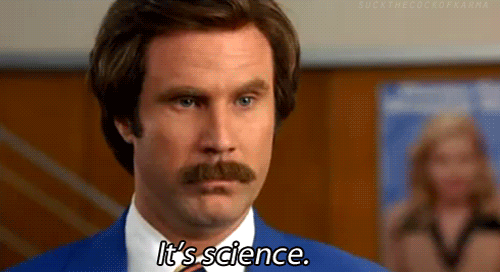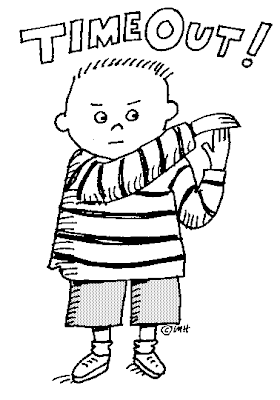I'm going to be saying goodbye to the guy who would randomly sing and dance with me at will. Heck, him and I even entertained our friends during senior week by dancing non-stop while they sat for a break. The best part: without practicing we somehow generally manage to get in-synch at some point. On top of that, we broke into a sterling rendition of "Blue Moon" for a couple of hall mates as they walked down the hall one day. Not rehearsed, but perfected.
I'm going to be saying goodbye to the guy I would spend my afternoons with freshman year playing Wii sports or Call of Duty. Boy, those were some intense battles golfing.
I'm going to be saying goodbye to the guy that I would go to the cafeteria and eat until we could eat no more. We just didn't care. One time, we went to see just how much we could eat and piled plate upon plate. Other times, we'd sit in the cafeteria and enjoy intellectually driven debates and conversations. It's always been about respect.
I'm going to be saying goodbye to the guy I played basketball, ultimate frisbee, and various intramural sports with throughout college. His competitive nature and drive to be the man would often drive me crazy but at the same time our games would mesh so well.
I'm going to be saying goodbye to the guy I'd sit up late with and just talk about nothing and everything all at once. We would talk about our presents, pasts, futures, worries, thoughts, frustrations, and everything in between. We just understand and respect each other, for the most part. One time, we stayed up while trying to figure out what drives my sleeping problems. (We're also both insomniacs).
I'm going to be saying goodbye to the guy who is my beer pong partner. We would often take turns carrying the team. Teamwork, baby.
I'm going to be saying goodbye to the guy who shares my passion for music. While our musical tastes at times don't align, we could always rally around the classics and oldies.
I'm going to be saying goodbye to the guy who has genuinely become one of my closest friends (which is ironic because I've always made fun of him for his use of "one of my best friends).
I could go on, but you get the point. Well, maybe you don't. Yes, I'm kind of having a moment of shit my friend is leaving, but it's more than that. Some of you may be thinking if you're that close you'll stay friends. You know what? I absolute will try my best and hope that is the case. However, experience tells me otherwise. Hopefully, at this stage in our lives, where we are a little older and (a little) more mature, things will be different. Let me explain.
Cycle of Life
Thinking about his impending departure made me recollect the various friends I've had over my life. It seems like with each new stage we are forced to start over again. Sometimes by choice; other times not by choice.For instance, I remember having great friends during pre-school. I distinctly remember going to their birthday parties and worrying frantically when one broke his collarbone during recess. Once kindergarten hit (we went to different kindergartens), I never saw them again.
Throughout elementary school, I had a ton of friends--a few closer than others. I considered some of these people my best friends and thought about our futures together. When high school hit, I seemingly lost those friendships that I thought would thrive.
In high school, I again started over. Yes, going to a new school obviously didn't help but it still was a new stage in my life. A chance to start over whether I wanted to or not. I met many people in high school and again made some close friends. Then came college. While I still keep in contact with some friends, it just isn't the same. I don't talk to them like I did, and I don't see them like I did. Yes, I still maintain friendships and I know others do as well, but I think you'd agree that it just isn't the same. My best friends from high school? Yeah, they don't even talk to me anymore (not sure why).
It even happened in sports. Like when I played travel soccer for years, many times year round. I made some friends there and thought it meant sometime, but everything fizzled after I left the team.
Now we have college. Once again, I started over and met a new batch of friends. I've had some really tremendous experiences with them and hope to continue the friendships. Life isn't that simple though. Still unsure of where I'll be next month let alone next year, I can't guarantee the same friendship will be there. Sure, texting and Facebook make things easier to stay in touch, but if you aren't in close proximity to where you can really see people often, friendships fade. You're still friends, but those people are out making new experiences with a new group of people.
I think it's another interesting aspect of life. You are constantly given the opportunity to reinvent yourself or learn from your mistakes. I will note that I don't really think a person ever necessarily changes. I think someone's core is always intact, but certain aspects can alter. If we didn't learn and adapt, we would never survive. So maybe learning from past mistakes in friendships will help these new ones or future new ones thrive. At the end of the day, all you can do is try.
I could see some of you saying at this point, Robert, maybe you just didn't try hard enough to maintain your lost friendships. You know what? You're probably right. I'm sure there was more I could have done, but it is a two-way street. You can only live in the for so long though. Past memories are great but new memories keep the fire of friendship burning.
The way life works is really bemusing at times. To think about how you can experience so much and lose it all in the blink of an eye. Obviously, it's a cycle of learning experiences, I think at least. What I'm trying to relay is that I'm tired of this cycle. I get its inevitability, but I'm getting tired of starting over. I'm not against making new friends; there are too many interesting people out there to shut the door on new friendships. What I'm merely saying is I don't want to lose my current friends. I just can't help but wonder if it's inevitable. Not just this friend, but the others too. Currently, I'm still in Cincinnati and can see friends who reside here, but I wonder what will happen if I move back home. Will things change? Probably. You'll always have the past and I know I'll always be able to see this friend or other friends and have a good time. It'll just become so temporary, which is a scary thought.
I'm not sure what the solution to this problem is or even if one exists. My best guess is to try harder. If you want something or want to sustain something, you have to work for it. Life doesn't just decide to take it easy on us (usually). For as long as it takes to build friendships, they can fade much more easily. It's kind of like trust in that sense.
To clarify, many people will maintain long friendships. Proximity (as I've said) is a huge factor though. I think it's slightly more difficult now than it was for past generations because we go all over for schooling while typically (at least from what I can tell) many people used to go to school in the same area, which allowed them to continue friendships more easily. So, it can be done and will be done. There just seems to be a high frequency of unsuccessfulness.
I know life will go on. I know this sometimes vicious cycle will continue. I just sometimes wish it was easier to stop it. It's not though, and that's what makes life so interesting. You must stay on your toes at all times. You must enjoy every minute, every second because you just don't know how long the times will last. I'm happy to say I've really tried to soak up the good times and will keep them in my memory if nothing else.
So, Brian, I guess this post is my pre-goodbye to you. I'm going to miss you my friend. I know you're about to do great things because you're competitive nature won't let you do any less. Just make sure to keep your head up, sing often, smile infectiously, stop shooting so many threes, and never stop randomly dancing (remember, it increases happiness!). I look forward to the challenge of continuing our friendship, and while I know you'll get new friends and have new adventures, I look forward to future adventures when life allows our paths to cross again.
All the best,
Robert L. Lisiecki























